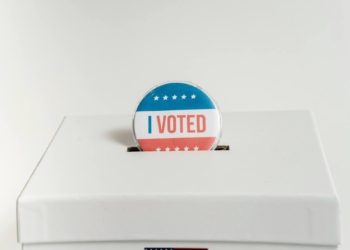Responses to the 2020 census help determine how hundreds of billions of dollars in federal funding are distributed to local communities and the input of military families is vital to the process.
“For military families, the census is essential to the communities in which you live,” Sharon Tosi Lacey, Chief Historian at the U.S. Census Bureau, said. Whether you live on base, in nearby towns or are deployed or stationed overseas, it’s important to be counted.
State, local and federal officials will use data from the 2020 census to determine funding for infrastructure and critical public services.
“What benefits the community, benefits members of the military and their families. By filling out the census, you are shaping the future of your community,” Lacey said.
Should I fill out the census?
Most military households are responsible for responding to the 2020 census on their own if they are stationed or living in the United States.
According to Lacey, you should fill out the census if you are:
- Active duty stationed in the United States and not deployed outside of the United States;
- A military family member living in the United States. (Do not include your spouse or other relative if they are deployed outside of the United States as of April 1, 2020. The census will coordinate with the DOD to count those who are deployed); or
- A veteran.
What if I live in a barracks or if I am on a ship?
You will be counted in a military barracks in the United States if that’s where you were staying on April 1, 2020. A military point of contact, sworn to protect your privacy, will distribute individual questionnaires, collect them when complete and return them to the Census Bureau. This is similar to how people living in other group quarter facilities such as college/university student housing respond as part of the group quarters data collection. The same procedure applies if you are on a military vessel with a homeport in the United States.
What if I am deployed? What if my family and I are stationed overseas?
You do not need to fill out the Census if, as of April 1, 2020, you were active duty and were:
- Deployed outside the United States. (Note: Any family member living in the United States need to respond for themselves to a Census questionnaire);
- Stationed or assigned outside of the United States. (Note: This category also includes dependents living with you outside of the United States); or
- On a military vessel with a homeport outside of the United States.
In these instances, the DOD will provide the Census Bureau administrative data to count you.
Is it safe? Will someone come to my home?
Your responses to the 2020 census are safe and secure. Federal law bars the Census Bureau from releasing personal census data to law enforcement, immigration agencies or other government agencies. Additionally, employees will never ask your legal status, religious beliefs or any questions about your political beliefs.
If you respond online or by phone today, a census taker is less likely to have to visit your home to collect your response. Census takers are hired from your area, and their goal is to help you and everyone in your home be counted in the 2020 Census.
Due to the COVID-19 pandemic, census takers will wear masks and follow local public health guidelines when they visit your home. All census takers have been trained on social distancing and other health and safety protocols before beginning their work.
How can I be counted and who should I include in my response data?
According to Lacey, the most important thing is to respond online or by mail. If you received a postcard or letter in the mail, it will have instructions, including your census ID.
You can still respond online to the 2020 Census even if you did not receive a letter or paper questionnaire. Go to my2020census.gov. Select the link that says, “If you do not have a census ID, click here.”
It is located below the census ID login field.
You can also call (844) 330-2020. The census currently has interpreters fluent in more than 40 languages.
Remember to count everyone who lives in your household, including young children, newborns and any relatives or others. People will be counted where they live and sleep most of the time as of April 1, 2020 (Census Day).
“If you have a baby born April 1. He or she would be counted in the census. However, if you have a baby April 2, 2020, he or she would not be counted,” Lacey said.
Final thoughts
The census has a long history in our country. In fact, it’s in Article 1, Section 2, of the U.S. Constitution, where it is required that the country gather an accurate count of its population once every 10 years. This year marks the 24th time that the country has counted its population since 1790.
The results of the census will determine the number of seats each state will have in the U.S. House of Representatives, and they are used to draw congressional and state legislative districts.
Your participation matters because it provides critical data that lawmakers, business owners, teachers, and many others use to provide daily services, products and support for you and your community. Every year, billions of dollars in federal funding go to hospitals, fire departments, schools, roads and other resources based on census data.
Families should respond to the 2020 census by the end of September.
“This is your count. This is the people’s count. This is your census,” Lacey concluded.













































